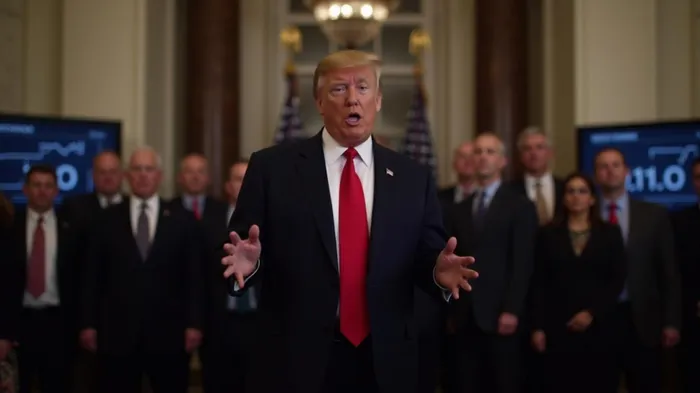Trump Accepts Temporary Recession Amid 0.3% GDP Drop
On May 2nd, Donald Trump expressed his willingness to accept a temporary economic decline in the United States. In an interview, Trump stated, "I can accept a temporary recession in the U.S. economy. The U.S. is in a transitional period, and I believe the U.S. will ultimately perform very well." This statement comes at a time when the U.S. economy is showing mixed signals, with some indicators pointing to a potential slowdown.
Trump's remarks highlight his confidence in the long-term prospects of the U.S. economy, despite the current challenges. He believes that the temporary economic decline is part of a broader transition period, during which the economy will eventually stabilize and perform well. This optimism is in contrast to the concerns raised by some economists and analysts, who have pointed to recent economic data that suggests a potential recession.
One of the key indicators of economic health is the Gross Domestic Product (GDP), which measures the total value of goods and services produced in a country. In the first quarter of 2025, the U.S. economy experienced a contraction in GDP by 0.3%, the steepest drop since the pandemic's initial shock in 2020. This decline was largely driven by a record-breaking trade deficit, as imports surged in anticipation of Trump's tariffs. Exports, however, grew at a much slower pace, creating the largest drag from trade in history.
Despite these challenges, Trump and his allies frame this as a temporary stumble, blaming the Biden administration for "bad numbers" and predicting a boom once tariffs and immigration reforms take hold. The economic data paints a complex picture. While Trump highlighted the addition of 456,000 jobs in the first quarter, calling the March data "far better than expected," there are worrying trends beneath the surface. The April ADP report revealed a significant drop in private-sector job additions, and consumer expectations of unemployment hit near-decade highs. This divergence suggests that the labor market is cooling faster than the narrative admits, with mass deportations reducing labor-force growth and acting as a drag on long-term economic potential.
Financial markets have also reflected investor unease over policy uncertainty. The S&P 500 fell during Trump's first 100 days, and the dollar index dropped amid fears of trade-war fallout. Small businesses, which account for nearly half of U.S. jobs, report sinking optimism, with the NFIB’s optimism index hitting a 10-year low in April. The administration's focus on reshoring may take years to materialize, while the immediate costs—higher prices, weaker consumer confidence, and a significant recession risk—are already embedded.
Trump's mixed messaging—simultaneously downplaying GDP weakness while touting job gains—masks an economy at a crossroads. The data is clear: the trade deficit is historic, inflation is resurgent, and businesses are hesitant. While tariffs may eventually spur reshoring, the near-term costs—soaring import prices, declining consumer confidence, and a significant recession risk—are formidable. Investors would be wise to heed the divergence between rhetoric and reality. The "Golden Age" promised by the administration may require more than hope—it may demand a course correction before the fractures deepen.

Quickly understand the history and background of various well-known coins
Latest Articles
Stay ahead of the market.
Get curated U.S. market news, insights and key dates delivered to your inbox.



Comments
No comments yet